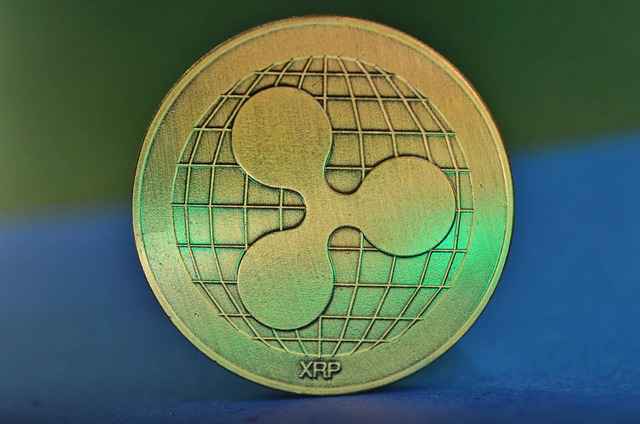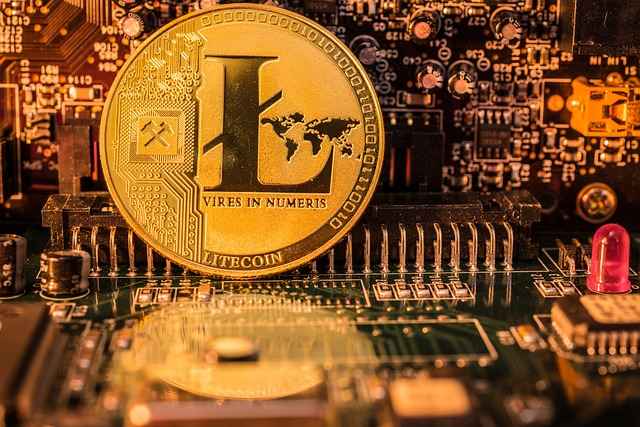Since their introduction to the mainstream, cryptocurrencies have experienced faster growth in utility, value, and popularity. Investors are keeping their eyes on them thinking of a possible way to earn great returns and store values.
Cryptocurrency and Blockchain technology has been taken the globe from the wave. Cryptocurrency is not the future but it is the fact of the present. But, can cryptocurrency replace money in the future? It is the question that may have been asked ourselves at least once.
Various cryptocurrencies are accepted by various merchants and retailers. The government is trying to figure out how to tax them. At the beginning of the cryptocurrency boom, Bitcoin was the unquestioned leader. Up until early this year, Bitcoin accounted for the huge majority of the industry’s market capitalization.
Then, in the span of a few months, Ethereum, Ripple, and some other cryptocurrencies rushed to catch up with the flow. While Bitcoins are still in lead, some industrialists questioning if cryptocurrencies are actual currencies.
Some are also predicting that a bigger change may happen ahead. This idea nurtured the thought that cryptocurrencies may come to replace cash entirely.
Can cryptocurrency replace money?
- While switching to net banking and a crypto wallet is hard enough for most people to head around. Cryptocurrencies, a form of digital assets can be used for speculative investment purposes. Cryptocurrencies also can be used as a medium of exchange for purchasing goods and have gained huge popularity over recent years.
- Bitcoin, introduced in 2008, gained specific prominence in the headlines in the current years. Bitcoin is one of the renowned cryptocurrencies among the many cryptocurrencies in the world.
- Besides, Ethereum, DogCoin, LiteCoin, etc. are also widely adopted by investors today. The primary problem with cryptocurrency is achieving the trust to make it work. The Central bank must be trusted not demean the currency. Whereas, fiat money is full of breaches of that trust.
- Cryptocurrency is a questionable medium of exchange for national emergencies. If there is any big emergency then communication over the nation will be disrupted. Cryptocurrency is very much reliant upon the network to verify the transaction.
- Cryptocurrencies are one of the most possible assets to fill up the untapped market. But, it is not as convenient and stable as cash. To be the mainstream. Cryptocurrencies need to be reliable for day-to-day financial transactions such as to sustain a household.
- Cryptocurrencies are very volatile and are not regulated by any agencies. That may cause it to be the backbone of decentralized currency and are the reason for not having the credibility to be called legal tender.
Cash is the physical form of money. In some following years, cash transactions may decline. The use of cash may fall in sometime time. Presently, debit and credit cards have replaced most cash transactions.
How does cryptocurrency work?
Cryptocurrencies work on a distributed public ledger called a blockchain. All the records of all transactions are held and updated by the currency holders. The units of cryptocurrencies are made through a process called crypto mining.
This process involves the computer power to solve complicated mathematical algorithms that generate coins. Investors can buy the currencies from the brokers and then store them and spend those using cryptographic wallets.
If you own cryptocurrency then you don’t own anything tangible. You only are allowed to access a key that allows you to move a record. Although Bitcoin has been introduced in the market in 2008, cryptocurrencies and the applications of blockchain technology are emerging with financial prospects.
So, many users can be expected in the future. Transactions including stocks, bonds, and other financial assets could be eventually traded using the technology.
What may happen if cryptocurrency replaces money?
The current form of cryptocurrencies (transcend borders and regulations) has both positive and negative effects. Cryptocurrencies are not controlled and developed by the Central bank in the way it controls the fiat money in developed countries.
Central banks use monetary tools to influence inflation and the rate of interest and open market operations. Decentralized, one of the greatest tools behind cryptocurrencies removes these tools.
The effect of cryptocurrencies is still being explored and evaluated. There might be adverse impacts on the economy and financial stability. However, the change might bring complete global stability. The International Monetary Fund recommends opposes adopting cryptocurrencies as the main national currency in its present state because of price volatility.
This organization also feels that macro-financial stability and lack of consumer protection must be considered. However, the organization states that the adoption of cryptocurrencies is most likely to be happening in the countries where cryptocurrencies risks are an improvement on the financial system in place.
Cryptocurrencies are also being used by several countries with severe fiat devaluation to reserve their savings, and conduct businesses.
Biggest Cryptocurrencies
There are some biggest cryptocurrencies in the market. Some of the best cryptocurrencies are:
Bitcoin:

Bitcoin is the first cryptocurrency in the world and still is the most commonly traded. This currency is designed by Satoshi Nakamoto. Bitcoin is widely believed to be a pseudonym for the investor as the identity remains unknown.
Ethereum:

Ethereum is a blockchain cryptocurrency with a unique currency called Ether. It was initiated in 2015. It is the most popular cryptocurrency after Bitcoin.
Ripple:

Ripple was founded in 2012 and it is a distributed ledger system. Ripple can track different kinds of transactions, not the only cryptocurrency.
Litecoin:

This cryptocurrency is most similar to Bitcoin but has been moving quickly towards innovations. Some of the innovations are quicker payments and processes to allow more transactions.
Non-bitcoin currencies are collectively known as altcoins. This name has been given to distinguish them from the originals.
FAQ:
Will crypto replace cash in the future?
Ans: Some of the studies show that cryptocurrencies might be the future currencies in place of money. But, both Republicans and Democrat believes that cryptocurrencies need strong regulations. With a strong appeal to minorities and young people, cryptocurrencies have to potential to establish a fairer economy.
Can cryptocurrencies change the role of money?
Ans: Digital currencies cannot perform as physical money. They come with some risks if they are used in the long run. Bitcoin, the most traded cryptocurrency in the world, will suppress money issued by Central banks. Bitcoin will be the dominant form of finance worldwide in less than 30 years.
Wrap Up:
Cash is the physical form of money. The transaction of cash has been declining for some time. The use of money may continue to drop, and there is a high potential of something may replace it.
We can see that credit and debit cards have been reducing the number of cash transactions. Cryptocurrency is still new, it has high potential to be as fiat in the future.







